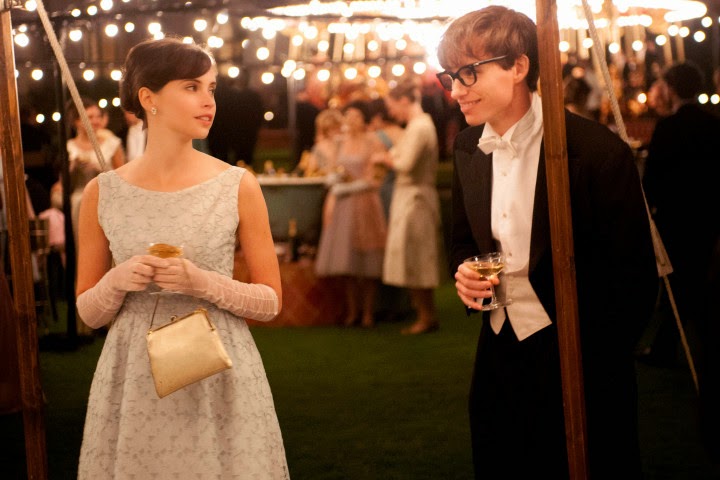Today is Professor Stephen Hawking's 73rd birthday. Stephen Hawking is a great man, a man famous the world over, a man who has outlived his Motor Neurone Disease prognosis by almost 50 years and who has devoted that time to scientific endeavour. That's the man we know.
This week I went to the movies to see The Theory of Everything - based on Jane Hawking's book of their life together. It's already my favourite film of 2015. Famous for quintessentially British films that satisfy a global audience, Working Title have done a splendid job with the story and have created something quite beautiful. The cinematography, by Benoît Delhomme is terrific, making the stunning backdrop of Cambridge and the University, wonderful supporting characters. And it's much easier to notice a bad score than a good one, but Jóhann Jóhannsson has also done an admirable job. The music is quiet, emotional and rousing in all the right places and is a perfect accompaniment to the action.
All three are cleverly woven to allow the main characters, Eddie Redmayne playing Stephen Hawking and Felicity Jones as Jane Hawking, to shine like stars and shine they do. Brightly circling each other from their first meeting, they bring the screen alive. Charming and geeky, Hawking's first encounter with Jane at a university gathering in 1963 sees them talking all night about equations. He excitedly tells her he believes there is one simple, elegant but elusive equation that explains everything in the universe and when she asks "what's the equation?" he replies "I'm not quite sure but I intend to find out". The one equation that mattered that evening is Jane's phone number, which she gives him at the end of the evening.
Their next significant meeting sees them at the end of year University ball. By the end of the night, scientist had fallen in love with artist as they danced under the stars.
Taken by his Professor to the lab where the ground work was done on splitting the atom, he immediately feels at home and sets to work, trying to find the equation that will prove the simple theory of everything. It seems his life is mapped out in the stars.
A clumsy fall, hospital tests, a diagnosis of Motor Neurone Disease and a life expectancy of two years suddenly turn his world upside down. With his own mortality staring him in the face, he realises the subject for his research will be time. He sets to work on his equation. Telling him she loves him and that they should be married and spend whatever time he has left, together, he tells Jane she has "leapt to a false conclusion". To Jane, it's the only conclusion that makes sense.
Somewhat underplayed in the movie, it's easy to underestimate what Stephen Hawking did in his field. He turned the science behind black holes and our understanding of time, on its head.
Redmayne, who is already tipped for an Oscar nomination, portrays Hawking's illness and deterioration brilliantly. It's easy to forget it's real. The suffering, determination and brutality of Motor Neurone Disease are real and Hawking has experienced every last scene.
All the while Jane loves him anyway. She loves who he is, who he is becoming and who he will be.
The years pass quickly, three children are born, significant others are added to the equation, their marriage breaks down and yet, the Hawkings always work it out.
Hawking believes that quantum physics and the physics of relativity don't understand each other because they don't speak the same language. His lifelong search for the simple, elegant equation is about seeking to understand and be understood.
I believe he's found an answer. It may not be the answer he's been looking for, but in the most fascinating and beautiful journey, Stephen and Jane Hawking have proved the theory of everything is simply and elegantly, love.
I'm reminded of the magnificent movie Interstellar, which also shared themes of space, time, science and relationships, with love at its heart. Sometimes the truth can be as magical and groundbreaking as fiction. The Theory of Everything is a triumph.
Happy, happy birthday Professor Hawking. And thank you for the theory of everything.

